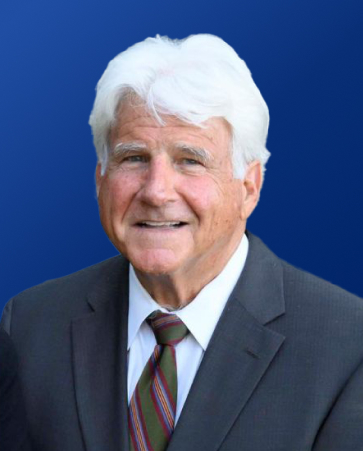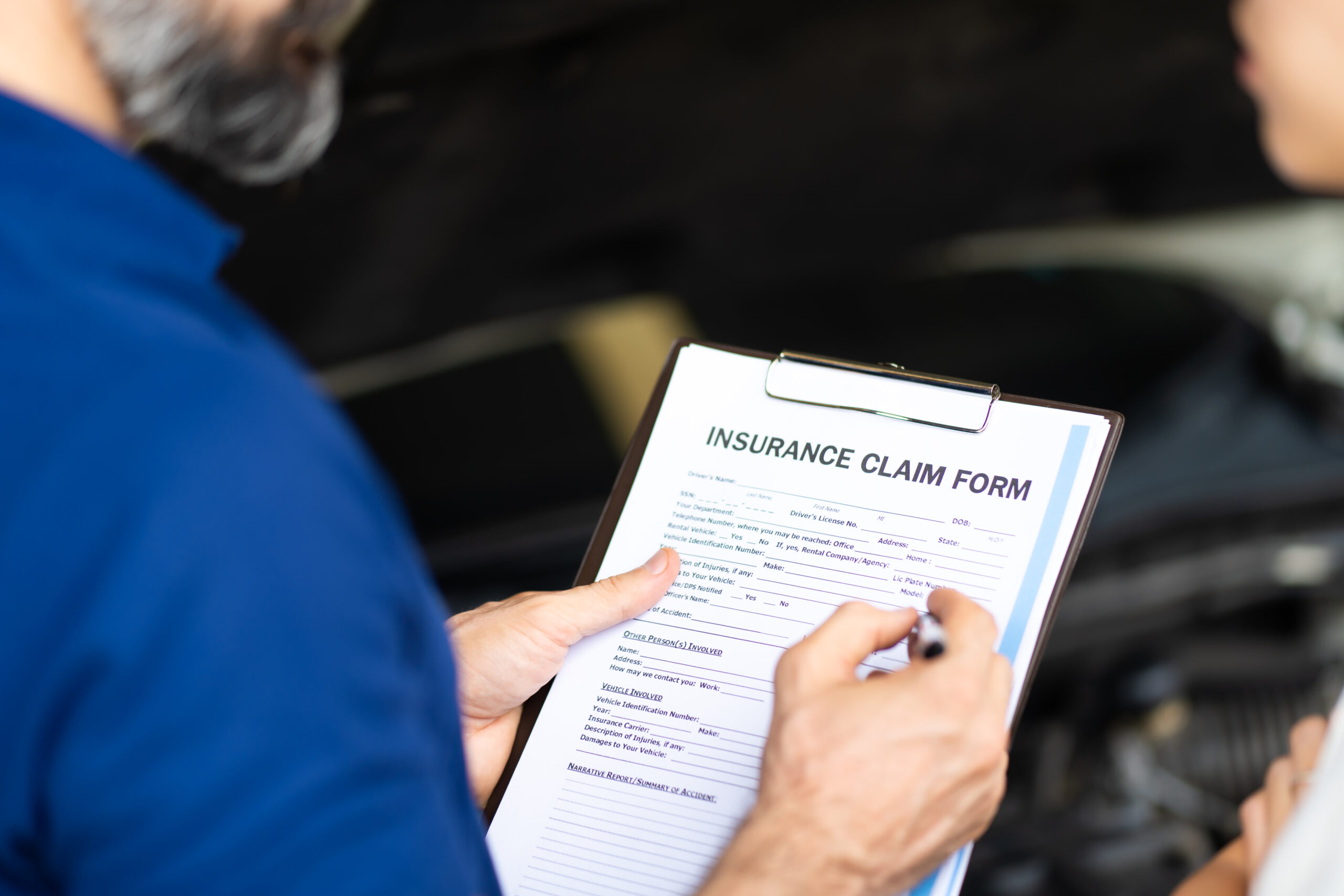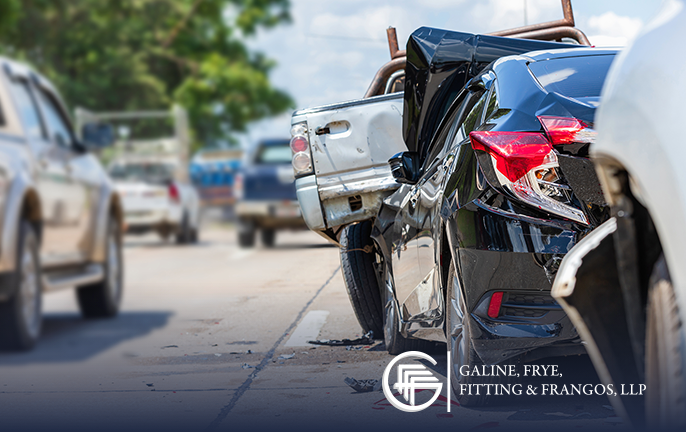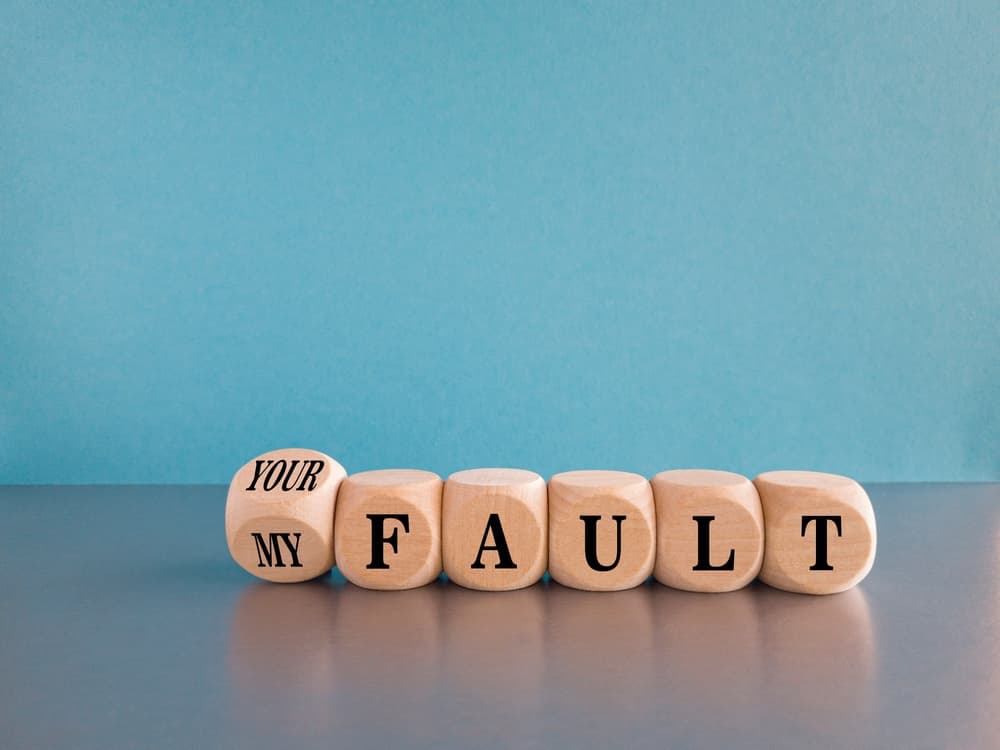After a car accident that you did not cause, you might not know whether to contact your insurance company. After all, your driving did not lead to the mishap, so why should you involve your insurance company?
You generally must do so regardless of fault.
Consult an experienced car accident attorney who can steer you in the right direction. A knowledgeable lawyer will navigate the insurance claims process so you can receive appropriate compensation for your injuries and damages.
Your Duty to Report Accidents

You may not want to involve your insurance company, but doing so may result in some serious consequences. For example, many insurance policies require you to report any accidents to your insurance company. This contractual obligation ensures your insurance carrier is aware of any potential claims, which can protect their interests and yours.
Even if an accident is not your fault, failing to report it to your insurance company may lead to several negative outcomes.
First, you may breach your insurance policy, which can result in the denial of coverage for any damages or injuries you sustained in the accident. Additionally, your insurance rates may rise due to the perceived risk of unreported accidents. Your insurance company may even choose not to renew your policy.
For these and other reasons, talk to your attorney and report an accident to your insurance company even when it is not strictly necessary. After some occasions, however, you must report an accident.
When Do You Need to Report the Accident?
If a car accident results in significant property damage, injuries to any parties involved, or disputes regarding who is at fault, you have a legal obligation to report the accident.
For example, motorists in California must report all car accidents that result in injury, property damage, or death to the California Highway Patrol or local police immediately or at least within 24 hours.
Moreover, once you involve law enforcement, or if any legal proceedings take place, notifying your insurance company ensures proper representation and protection of your interests.
Reporting an Accident in No-Fault Insurance States
In no-fault insurance states, drivers must carry personal injury protection (PIP) coverage as part of their auto insurance policy. This type of coverage pays for medical expenses, lost income, and other damages regardless of who is at fault for the accident. In these states, drivers must seek compensation from their insurance provider before pursuing a claim against the at-fault party.
PIP benefits provide a safety net for drivers in accidents, ensuring that they receive compensation for their injuries, even if they were at fault for the accident. These benefits can be invaluable in covering medical expenses, rehabilitation costs, lost income, and even funeral expenses in the event of a fatality.
In no-fault insurance states, contact your insurance company following an accident. By doing so, you can initiate the process of securing PIP benefits and make sure that your insurer knows about the accident, even if you believe it was not your fault. In these cases, your attorney can guide you through the process of filing a PIP claim and protecting your rights.
Reporting an Accident in At-Fault States
In at-fault or tort states, the driver who causes an accident must compensate the other party for injuries or damages. The at-fault driver's insurance policy, therefore, typically covers the costs associated with the accident up to the policy's limit.
You might wonder if you must report an accident to your insurance company in an at-fault state, such as California, when the other driver caused the accident. While it depends on state laws, it is generally a good idea to contact your lawyer for this guidance.
Subrogation
Subrogation is another reason to contact your insurance company immediately after an accident. In this legal process, your insurance company first pays for your damages and injuries. Then they pursue a claim against the at-fault party or their insurer. In these situations, your insurer recovers the costs they expended on your claim and, in some cases, your deductible.
A significant benefit of subrogation is that it can expedite the claim resolution process. Since your insurance company has a personal stake in recovering its losses, it will often work diligently to pursue reimbursement from the at-fault party's insurer. If successful, subrogation can also recover your deductible, meaning you ultimately receive reimbursement for your out-of-pocket expenses.
When Your Case Requires Subrogation
Subrogation becomes relevant when another party caused the accident, and their insurance company will not compensate you quickly or at all. In these cases, your insurance company can step in, cover your damages, and then pursue reimbursement from the at-fault party's insurer. A knowledgeable attorney can explain the subrogation process and take any actions that can expedite it.
Uninsured/Underinsured Motorist Coverage
Uninsured/underinsured motorist (UM/UIM) coverage protects you after an accident with a driver who either lacks insurance or has insufficient coverage to pay for your damages. You want this coverage in at-fault states, since it ensures that you do not have to shoulder the financial burden of an accident that you didn’t cause.
If you find yourself in an accident caused by an uninsured or underinsured driver, contact your insurance company immediately. By doing so, you can promptly initiate the process of filing a UM/UIM claim. Since UM/UIM coverage is not mandatory in all states and coverage varies, contact your attorney immediately to receive guidance on successfully navigating this process and protecting your rights.
When UM/UIM Coverage Applies
UM/UIM coverage may apply in several situations, such as when the at-fault driver has no insurance, their policy limits are too low to cover your damages, or you do not know who they are due to a hit-and-run accident.
In each of these scenarios, your UM/UIM coverage provides compensation and protects you from financial hardship. If you have UM/UIM coverage, make sure you understand when it applies and its limitations.
Preservation of Evidence
Reporting an accident to your insurance company is vital for preserving evidence and creating a record of the incident. This information can be invaluable, especially if disputes arise. Prompt reporting allows your insurer to begin their investigation and gather vital evidence before it becomes lost or unavailable.
Evidence preservation is especially critical when it comes to resolving legal proceedings. Photographs, witness statements, and documentation of damages can all play a major role in supporting your claim or defending your position in court. By reporting the accident to your insurance company, you help to ensure that they collect and preserve the necessary evidence so that it is readily available if you need it later.
Always Preserve Evidence
Evidence preservation is particularly important in instances of contested liability, accidents with multiple parties, and cases where the other party denies responsibility. In these situations, a properly documented record of the accident can significantly improve the outcome of your claim.
A skilled attorney can also use well-documented evidence to plead your case in court, if necessary.
Legal Representation
Consult a personal injury lawyer after an accident regardless of fault. An experienced attorney can provide valuable advice on your rights, navigate the insurance claims process, and, if necessary, represent you in court to ensure you receive the compensation you deserve.
An Attorney Can Provide Guidance on Whether to Contact Your Insurance Company
An attorney can determine whether contacting your insurance company is necessary or advisable, based on the specific circumstances of your case. Your attorney can also assist you in understanding the relevant insurance policies and legal implications for your region.
Situations That May Require Legal Representation
In some situations, legal representation is necessary. These include disputes regarding fault, accidents involving severe injuries or substantial property damage, and instances involving an uninsured or underinsured driver.
Consult an Experienced Lawyer After Your Accident

Drivers must consider several factors before deciding whether to contact their insurance company after an accident, especially when it is not their fault. Factors such as contractual obligations, no-fault insurance laws, comparative negligence, subrogation, and the preservation of evidence all play a role in this decision-making process.
You must understand your auto insurance policy and the laws in your jurisdiction. By doing so, you can make informed decisions about when to contact your insurance company and how to protect your rights and interests. Reach out to a personal injury lawyer.
In most cases, report an accident to your insurance company regardless of fault. This ensures you fulfill your contractual obligations, preserve vital evidence, and protect your rights throughout the claims process. You shouldn't ignore these considerations, even in an at-fault state. Reach out to your insurance company immediately after an accident, regardless of whether the other party has a legal obligation to compensate you for damages you sustained.
Consult an experienced personal injury attorney. Your attorney can provide the guidance and representation you need to navigate the complex claims process. They can interact with your insurer more effectively. Most importantly, they can secure the compensation you deserve.


